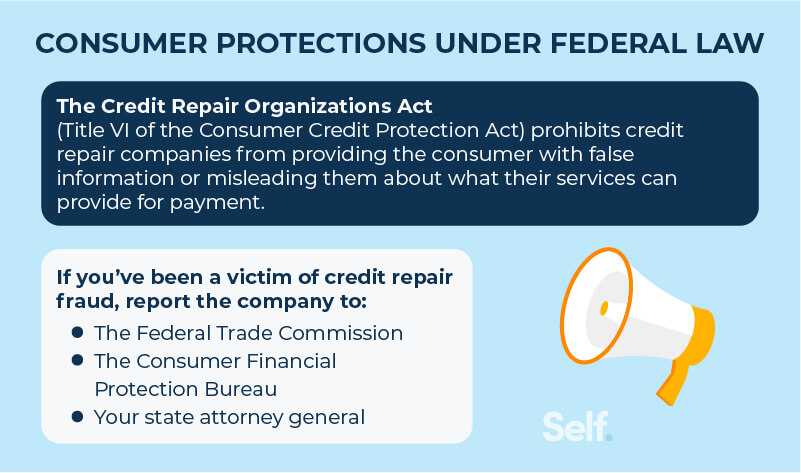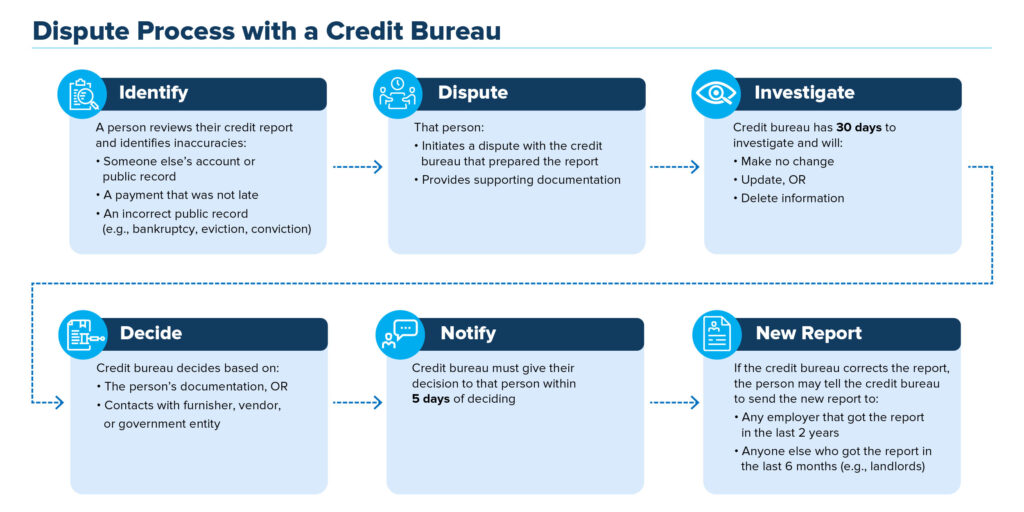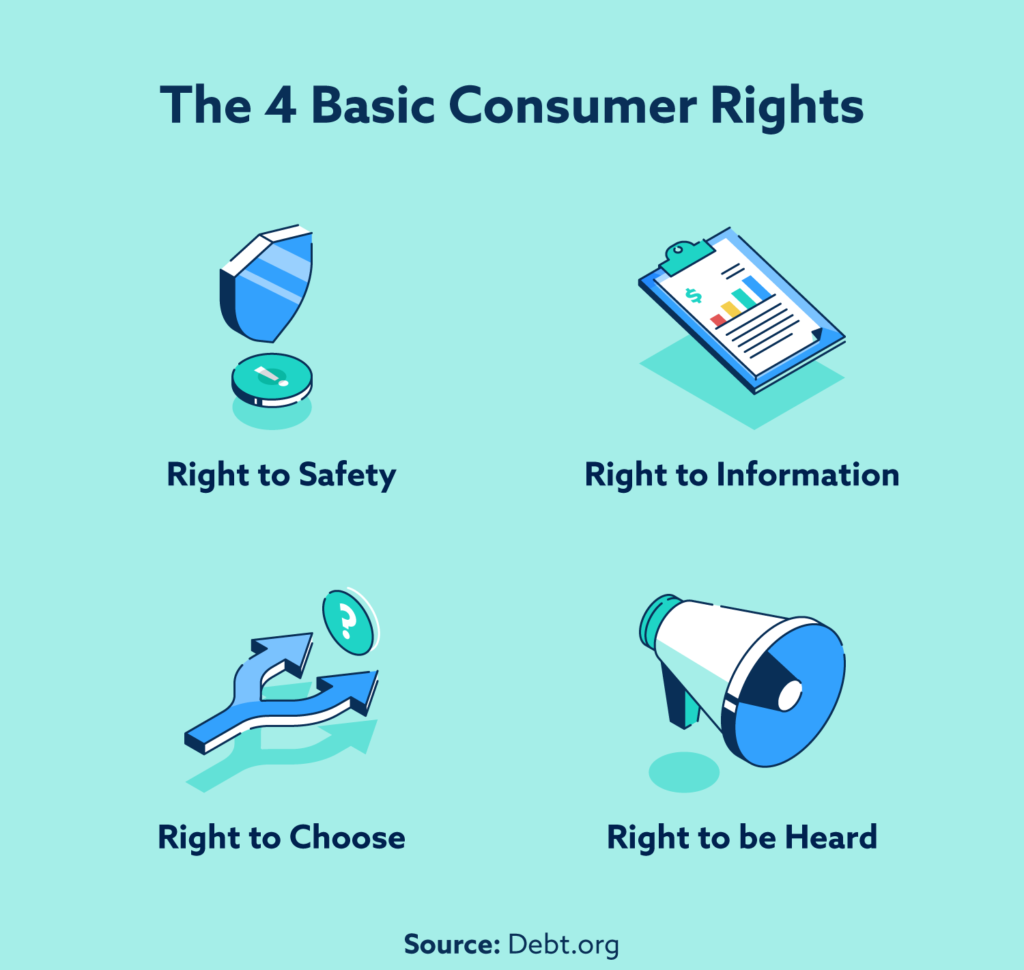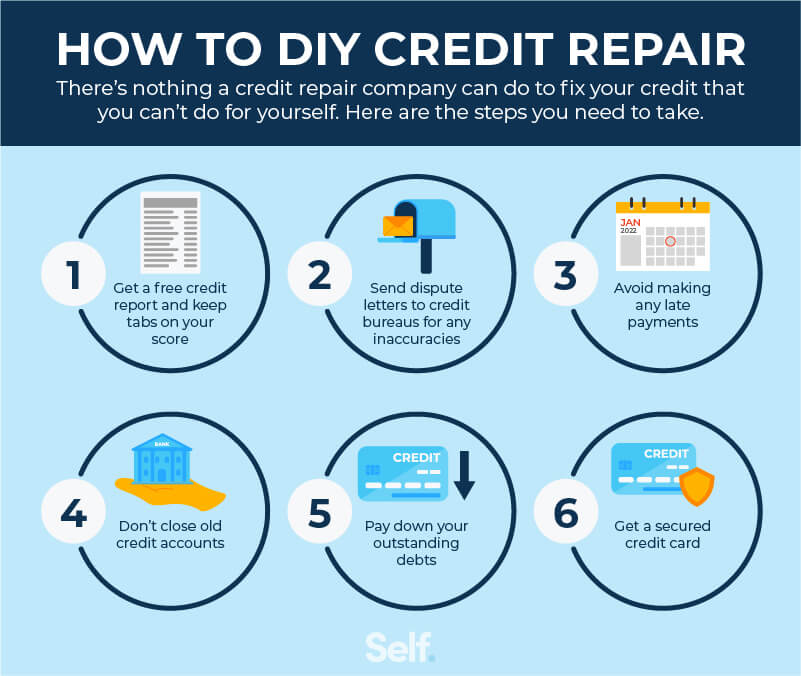In this article, we will discuss the various legal rights and protections that you have as a consumer during the credit repair process. You will learn about your rights under the Fair Credit Reporting Act, including your ability to dispute inaccurate information on your credit report. We will also explore the protections provided by the Credit Repair Organizations Act and the steps you can take if you believe a credit repair company is engaging in fraudulent practices. By the end of this article, you will have a better understanding of your rights and how to protect yourself during the credit repair process.
Overview of Consumer Rights
Understanding Consumer Rights
As a consumer, you have certain rights and protections in place to safeguard your interests during the credit repair process. These rights are essential for maintaining fair and accurate credit reporting, ensuring ethical debt collection practices, and safeguarding against fraudulent credit repair schemes. Understanding these rights empowers you to take action and seek remedies when your consumer rights are infringed upon.
Consumer Rights in the Credit Repair Process
The credit repair process involves evaluating and rectifying any inaccuracies or discrepancies in your credit report. This is crucial because your credit report plays a significant role in determining your creditworthiness and financial opportunities. During this process, you have several legal rights and protections to ensure fairness, accuracy, and transparency.
Fair Credit Reporting Act (FCRA)
Importance of FCRA for Consumer Rights
The Fair Credit Reporting Act (FCRA) is a federal law that regulates the collection, use, and reporting of consumer credit information. It is one of the most important pieces of legislation for protecting consumer rights during the credit repair process. The FCRA sets certain standards for credit reporting agencies (CRAs) and ensures that consumers have access to accurate and fair credit reporting.
Protections Under FCRA
Under the FCRA, you have the right to:
- Obtain a free copy of your credit report from each of the three major CRAs once every 12 months.
- Dispute and have inaccurate or incomplete information on your credit report corrected by the CRAs.
- Have outdated information removed from your credit report after a certain period.
- Place a fraud alert or freeze on your credit report if you suspect identity theft.
- Be informed if your credit report was used against you, such as in the denial of credit or employment.
- Seek damages from CRAs or furnishers of inaccurate information for violations of the FCRA.

This image is property of images.ctfassets.net.
Fair Debt Collection Practices Act (FDCPA)
Role of FDCPA in Consumer Protection
The Fair Debt Collection Practices Act (FDCPA) is another significant federal law that protects consumers against unethical and abusive debt collection practices. The FDCPA outlines guidelines and restrictions for debt collectors, ensuring they treat consumers fairly and adhere to professional conduct.
Prohibited Practices under FDCPA
The FDCPA prohibits debt collectors from engaging in certain practices, such as:
- Harassing or threatening consumers.
- Contacting consumers at inconvenient times or places.
- Using deceptive or misleading tactics to collect debts.
- Falsely representing the amount owed or making false statements about legal actions.
- Communicating with third parties about your debt without your consent.
If you believe a debt collector has violated the FDCPA, you have the right to take legal action and seek remedies for the violations.
Credit Repair Organizations Act (CROA)
Purpose and Scope of CROA
The Credit Repair Organizations Act (CROA) is specifically designed to protect consumers against fraudulent and deceptive credit repair practices. The act applies to businesses that offer credit repair services for a fee and establishes guidelines for their operation.
Consumer Protections under CROA
As a consumer, you are entitled to certain protections under the CROA, including:
- Receiving a written contract that details the services to be provided and the cost involved.
- Having three days to cancel the contract without any penalty.
- Expecting honest and accurate information about the time it will take to achieve results.
- Being informed of your rights as a consumer and receiving educational materials about credit.
- Not being charged upfront fees before services are rendered.
If a credit repair organization violates the CROA, you have the right to take legal action and seek remedies for any damages caused.

This image is property of consumer.ftc.gov.
Consumer Financial Protection Bureau (CFPB)
The Role of CFPB
The Consumer Financial Protection Bureau (CFPB) is a government agency dedicated to protecting and educating consumers in the financial marketplace. It plays a crucial role in enforcing various consumer protection laws, including those related to credit reporting and debt collection.
How CFPB Protects Consumer Rights
The CFPB ensures that consumers have access to accurate credit reporting by monitoring credit reporting agencies and investigating consumer disputes. It also enforces the FDCPA by taking action against debt collectors who engage in unfair or deceptive practices. Additionally, the CFPB provides resources and educational materials to help consumers make informed financial decisions.
Ensuring Credit Report Accuracy
The Importance of Accurate Credit Reports
An accurate credit report is vital for your financial well-being. It affects your ability to obtain credit, secure favorable interest rates, qualify for rental housing, and even get a job. Ensuring the accuracy of your credit report is crucial to protect your consumer rights and maintain your financial reputation.
Disputing Inaccurate Credit Information
If you find inaccuracies or incomplete information on your credit report, you have the right to dispute it with the CRAs. You can do this by filing a written dispute, preferably by certified mail, and providing supporting documentation. The CRAs are responsible for investigating your dispute within a reasonable time frame and correcting any inaccuracies. If the disputed information cannot be verified, it must be removed from your credit report.

This image is property of www.lexingtonlaw.com.
Protection Against Credit Repair Scams
Identifying and Avoiding Credit Repair Scams
While legitimate credit repair services exist, there are also scams that prey on vulnerable consumers. It is crucial to be vigilant and aware of the warning signs to protect yourself from falling victim to such scams. Some red flags to watch out for include:
- Promises of instant credit repair or guaranteed removal of negative information.
- Requests for upfront payment before any services are provided.
- Pressure tactics or attempts to deceive you into providing personal or financial information.
- Lack of transparency about the services, fees, and potential risks involved.
To avoid credit repair scams, always research the company, read reviews, and verify their credibility with reputable organizations such as the Better Business Bureau.
Filing Complaints against Fraudulent Practices
If you believe you have been a victim of a credit repair scam or have encountered fraudulent practices, you can file a complaint with various regulatory bodies such as the Federal Trade Commission (FTC), CFPB, or your state attorney general’s office. Reporting such scams helps protect other consumers and can lead to investigations and legal actions against the offenders.
Legal Actions and Remedies for Violations
Steps to Take in Case of Violations
If your consumer rights have been violated during the credit repair process, it is important to take appropriate steps to protect yourself. Start by documenting any evidence of the violation, including correspondence, phone calls, or any misleading information provided by credit repair organizations or debt collectors. Keep records of all written communications and document the dates, times, and names of individuals involved.
Seeking Legal Remedies for Consumer Rights Infringements
If informal resolution attempts fail, you may need to consult with an attorney specializing in consumer rights. They can guide you on whether to pursue legal action against the responsible parties, such as credit reporting agencies, debt collectors, or credit repair organizations. Depending on the circumstances, you may be entitled to compensation, monetary damages, or other remedies for the infringement.

This image is property of www.lexingtonlaw.com.
State-Level Consumer Protections
Additional Consumer Rights at the State Level
In addition to federal laws, many states have their own laws and regulations that provide additional consumer protections during the credit repair process. These vary from state to state, but commonly cover areas such as credit reporting, debt collection practices, and credit repair services. Familiarize yourself with your state’s consumer protection laws to fully understand your rights and take advantage of the available remedies.
State Agencies for Consumer Protection
Most states have established agencies or departments dedicated to consumer protection. These agencies are responsible for enforcing state consumer protection laws, investigating complaints, and providing resources and assistance to consumers. If you have concerns or need guidance regarding your consumer rights during the credit repair process, contacting your state’s consumer protection agency can be a helpful resource.
Conclusion
In conclusion, as a consumer, you have a range of legal rights and protections during the credit repair process. Understanding and asserting these rights is crucial for ensuring fair and accurate credit reporting, protecting yourself against unethical debt collection practices, and avoiding credit repair scams. The laws and regulations discussed, such as the FCRA, FDCPA, CROA, and the role of the CFPB, serve as important safeguards for your consumer rights. By staying informed, taking proactive measures, and seeking appropriate remedies when needed, you can navigate the credit repair process with confidence and protect your financial reputation.

This image is property of images.ctfassets.net.
